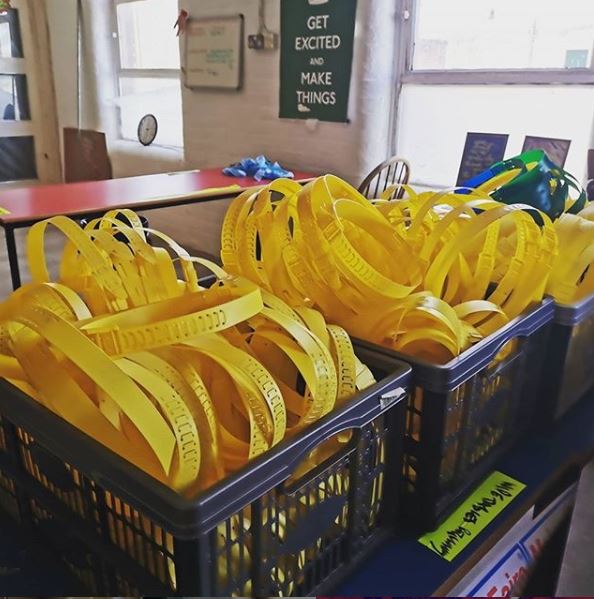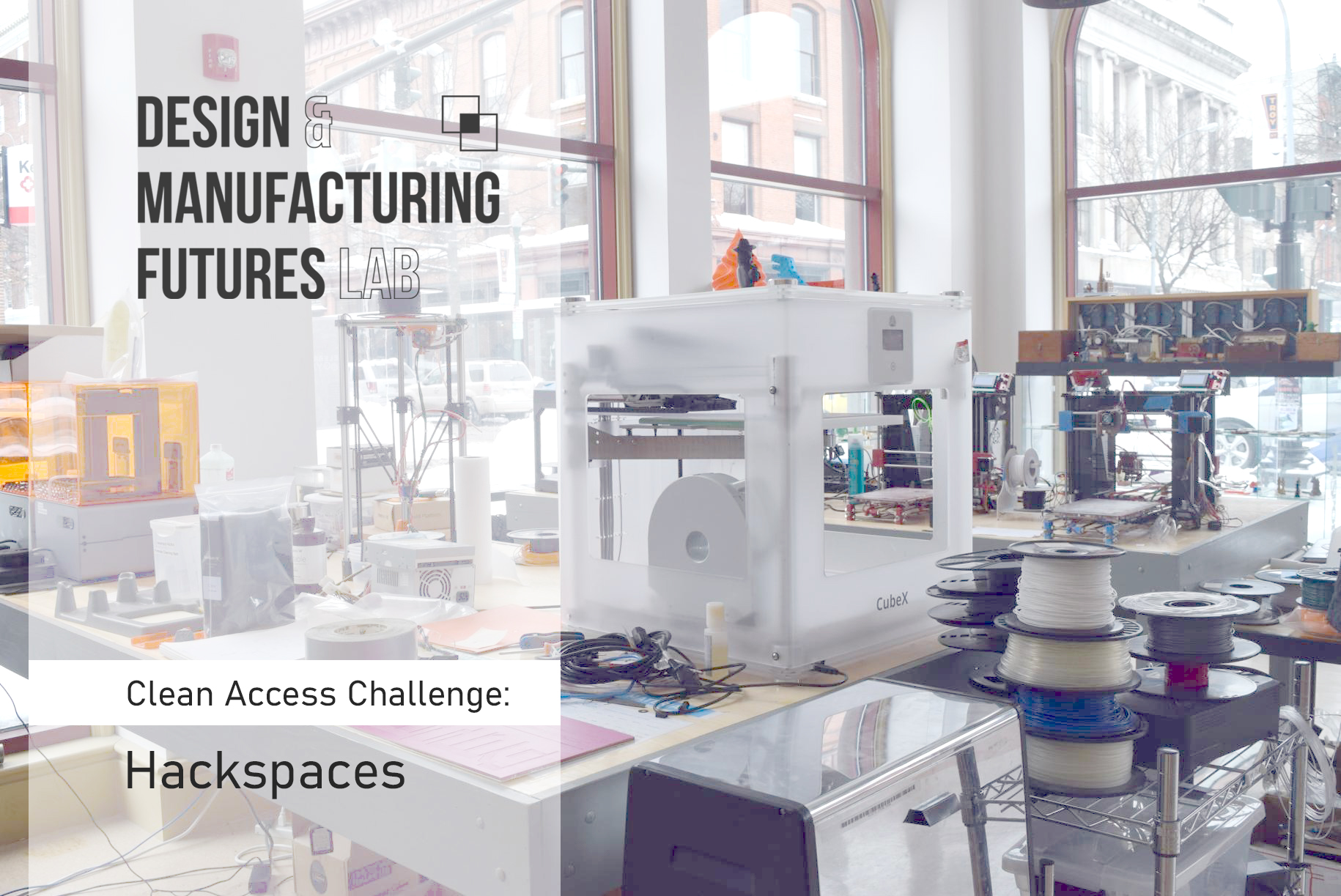Problem
The Hackspace, once exclusively synonymous with electronics and model airplane enthusiasts, has grown to become a globally acknowledged hub for social innovation and enterprise.
Appealing to an emergent cultural ethos of autonomy and shared knowledge, pop-up hackspaces have taken shape over the past decade in everything from railway arches to city office blocks, boasting an arsenal of rapid manufacturing tools and a rich caffeine fuelled ‘maker’ community, collaborating (needless to say, tirelessly) on gadgets, gizmos and ideas that may well shape our future.
It’s no surprise that in the face of this Covid-19 pandemic, Hackspaces have been widely applauded for their efforts to design, manufacture, and distribute open-source PPE supplies to hospitals and those at risk in the ongoing battle against Corona virus.

However, whilst the Hackspace model has proven a hotbed for innovation, its communal nature poses an altogether less attractive hotbed for virus transmission. The sharing of hand tools, machines and workspace make implementing good social distancing practice difficult, if not impossible, forcing many spaces to restrict access or close doors entirely.
This consequently limits local capacity to rapidly manufacture and supply PPE equipment, and suppressing the Hackspaces innate force to innovate, developing the solutions necessary for transitioning to a post-lockdown world. (check out some of our other challenges)
This challenge aims to outline and address issues surrounding community workspaces and other communal incentives dependant on the sharing of tools, resources and spaces.
Design Brief
Develop a tool or toolkit that can allow open community workspaces to implement safe working practices around the use of shared tools, equipment and spaces. The solution(s) should be widely applicable and apply to different tools and layout. Check out https://fabfoundation.org/ (that links to lots of different makerspaces all around the world) and the Bristol Hackspace Wiki.
This challenge is also being investigated by Field Ready, who have indicated they would be interested in seeing any solution. They have also provided an example makerspace layout available via the link here.
The solution may be physical artefacts, software solutions, working practices or anything else that may be useful – let your imagination run wild!
General Guidelines
Remember, all solutions should follow the guidelines below.
Solutions need to embody the values of project clean access and they should ideally follow the following design guidelines:
- Seal away the transmission site – all devices should in some way enclose or seal away the parts that make contact with potential transmission sites.
- Be simple, robust, cheap to make and use.
- Either:
- make use of common household or workplace items as part of the device, to save on cost and increase accessibility to all. For example, pens and USB sticks with lids to operate access devices and seal away transmission sites.
- OR be manufacturable by locally available technologies
Submission Guidelines
To be efficient with your time and to reduce the burden of paperwork our submission guidelines are as light-weight as possible, including a short overview/description, details of use, and the all important CAD/CAM models. We encourage the use of photographs and images and just enough information to present the design, its installation and operation. Given this, contributions should be a simple email adhering to the following minimum submission guidelines:
- Provide enough information to describe the design (purpose, typical applications, etc), ideally in the form or a short written summary.
- Contain instruction / guidance for use, ideally in the form of photos or videos.
- If to be digitally manufactured, CAM tractable files be provided for reproduction (eg STLs for 3D printing) and CAD tractable files (STEP or IGES) so designs can be customised or further developed if necessary.
All published designs will be made open access and shared with the global community to aid transition to normality post lockdown. By participating in the Clean Access Challenge you consent to the terms of creative commons license CC BY 4.0.
Get Involved
If you would like to get involved, get more information, or submit your own ideas for our design repository, send us an email at project-clean-access@bristol.ac.uk

